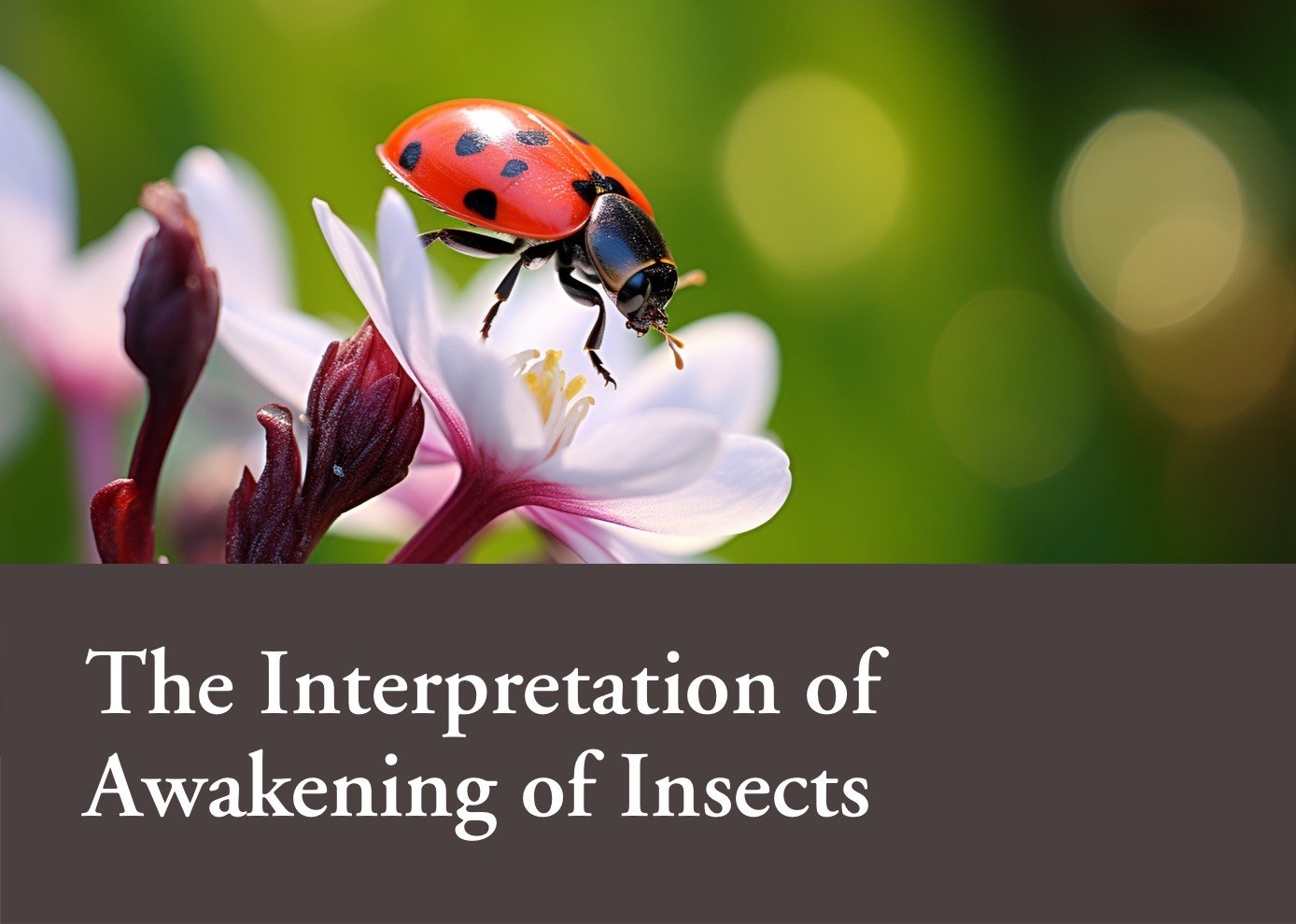The Interpretation of Awakening of Insects
Jingzhe (驚蟄the Awakening of Insects, also known as Qizhe (啟蟄), is the third solar term in the Chinese 24 Solar Terms. The second month in the lunar calendar generally begins on this day. A light rain makes the flowers bloom, and a thunderclap marks the Awakening of Insects (微雨眾卉新,一雷驚蟄始。).
Jing (驚) is a pictophonetic character in Chinese, which is derived from the character ma (馬, horse), so it bears the original meaning that horses or mules run crazily with fear. The character “jing” is not included in the oracle bone inscriptions. There are three extended meanings of “jing”. The first meaning is “to be afraid, nervous and uneasy due to sudden mental stimulation”. The second is “to be vibrate” and the third “to be unexpected”.
Zhe (蟄) is also a pictophonetic character, which is derived from the character chong (蟲, insects). It originally means that “animals hibernate, hiding themselves and not eating or moving in winter”. The character “zhe” is not included in the oracle bone inscriptions either.
 The evolution of the character “jing” (驚) in calligraphy.
The evolution of the character “jing” (驚) in calligraphy.
Different writings of the character “zhe” (蛰), including small seal script, official script, regular script, and cursive script.
Jingzhe, the Awakening of Insects, falls on March 5th or 6th every year. It reflects the phenomenon of natural organisms sprouting and growing due to the impact of seasonal changes. When the Awakening of Insects arrives, with the rise of the yang (bright and active) energy and the temperature, the spring thunder rumbles, the rain increases, and everything is full of vitality. The Awakening of Insects is divided into three periods, five days for each period. In the first period, peach blossoms begin to bloom; in the second, the oriole sings; in the third, eagles are hatching and turtledoves are cooing. The three periods together describe the beautiful time in the middle of spring when the red peach blossoms and white pear blossoms are blooming and the orioles and turtledoves are flying and singing. Both the Awakening of Insects and the Spring Equinox fall in the second month of the Chinese lunar calendar, which is known as “Maoyue” (卯月). The character “mao” (卯) refers to the middle of spring, which means “emerging” literally. The emergence of all things from the ground in this period of the year represents vitality, therefore, this month heralds the beginning of farming for the year. Agricultural production is closely related to the rhythms of nature. Jingzhe, the Awakening of Insects, is a reflection of ancient agricultural culture on natural seasons, so it has considerable significance in agricultural production.

The Chinese working people attach great importance to the solar term of the Awakening of Insects. During this period, most areas in China are entering the spring plowing season, and people are busily working in the fields everywhere. The natural scenery is beautiful at this time, but the weather may turn cold again after short warm spells. Therefore, we should pay attention to keeping warm and prevent the occurrence of diseases such as cold and flu.
All articles/videos are prohibited from reproducing without the permission of the copyright holder.




Welcome to leave a message:
Please Sign In/Sign Up as a member and leave a message